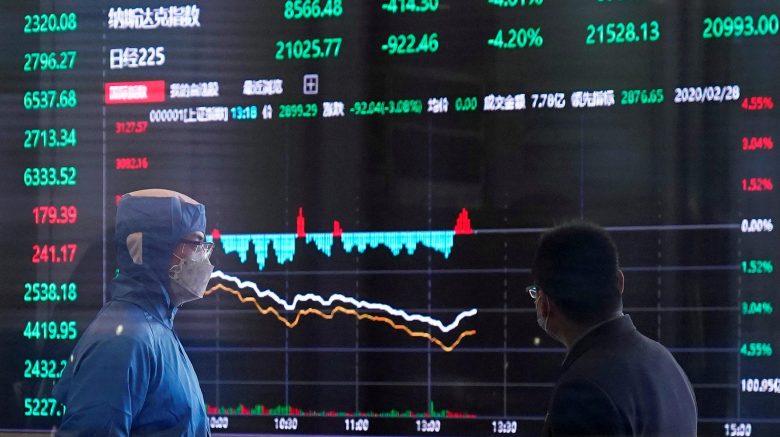During previous global financial crises—not to say they are a frequent occurrence—emerging markets have continued to bolster the world’s economy. For instance, manufacturing powerhouses like China and India have registered high growth in such times. However, the Coronavirus crisis has forced every economy into crisis. This eliminates the possibility of an export-driven recovery; instead, the U.S. must focus on addressing the immediate shortcomings and plan for the long-term damage.
Deflationary and financial risks have increased due to this dire economic collapse. The spread of Covid-19 has affected commodity exporters, with oil prices plunging and exporters like Saudi Arabia and Russia flooding a market with dwindling demand. The global economy is heading for one of the worst recessions in history.
The U.S. economy is not immune to the effects of the pandemic, as a large share of the services sector shutting down, sky-rocketing unemployment rates, disrupting industrial activity, and the labor market giving way.
Will We See Another Great Depression?
The extremity of the Coronavirus begs the question: “will we see another Great Depression almost a century later?” Kenneth S. Rogoff, a Harvard economist, responded with “I feel like the 2008 financial crisis was just a dry run for this.” “This is already shaping up as the deepest dive on record for the global economy for over 100 years,” he continued. “Everything depends on how long it lasts, but if this goes on for a long time, it’s certainly going to be the mother of all financial crises.”
The managing director of the International Monetary Fund (IMF) corroborated, “We anticipate the worst economic fallout since the Great Depression,” also forecasting that we would only see partial recovery come 2021. Blatant parallels can be drawn between the lockdowns on companies and the compromised jobs of their staff members today and through the 1930s. Expert claims find that the Covid-19 crisis will reach, if not exceed, the intensity at which the Great Depression affected America.
Combatting the Crisis
Congress has responded to the crisis with a series of monetary and fiscal stimulus packages to help mitigate short-term fallouts. Although this $2 trillion stimulus has been somewhat effective in addressing the pandemic’s immediate effects, barring the short straw pulled by small businesses, a long-term plan must be developed to combat the damage from this economic crisis. Further targeted stimulus measures are required to alleviate the harm caused to these small businesses and vulnerable households.
In addition to these longer-term plans, policy innovation is necessary. The Harvard Business Review suggests that central banks operate “discount windows” to provide “unlimited short-term finance to ensure liquidity problems don’t break the banking system.” This proposal prevents households and firms from damaging our banks. Another proposal on the upcoming policy landscape includes “bridge loans.” In other words, zero-interest loans offered to households and firms during the crisis with a generous repayment period. This would also include a “moratorium on mortgage payments for residential and commercial borrowers (and) using bank regulators to lean on banks to provide finance and to rework terms on existing loans.” In order for such policy innovation to be effective, agile execution is required. If done so correctly, this could have a huge positive impact on lessening the impact of the virus on Americans.
How Will the US Fully Recover?
The very nature of the Coronavirus pandemic makes the likelihood of a rapid recovery very low, and the aftermath of the economic crisis is only intensified by the toll Covid-19 has had on public health. The number of employees filed for unemployment, as well as the many disruptions manufacturing supply chains are experiencing make this pandemic far more severe than any other recession we’ve seen. Although issues regarding liquidity may arise with this recession, it is not entirely rooted in finance like the 2008-2009 crisis. The effects associated with the coronavirus extend to fundamental solvency issues for many industries that may have a long-lasting impact. A full recovery is not expected to be reached anytime this year.
